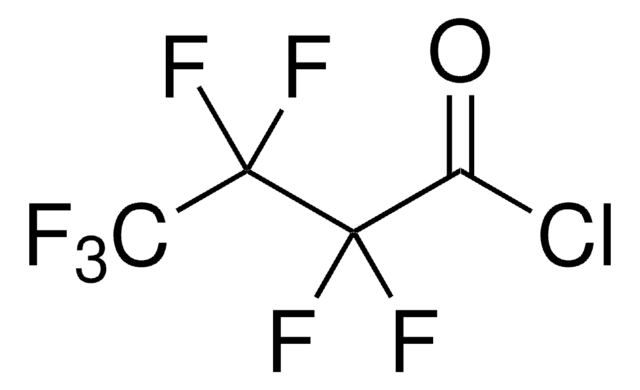About This Item
Recommended Products
Assay
98%
form
liquid
contains
copper as stabilizer
refractive index
n20/D 1.554 (lit.)
bp
102-103 °C (lit.)
solubility
alcohol: miscible(lit.)
chloroform: miscible(lit.)
diethyl ether: miscible(lit.)
water: insoluble (practically)(lit.)
density
1.837 g/mL at 25 °C (lit.)
storage temp.
2-8°C
SMILES string
ICC=C
InChI
1S/C3H5I/c1-2-3-4/h2H,1,3H2
InChI key
HFEHLDPGIKPNKL-UHFFFAOYSA-N
Looking for similar products? Visit Product Comparison Guide
General description
Application
- precursor for generation of allyl radicals to study their recombination in a single pulse shock tube with gas chromatographic measurements
- reagent used with allylindium sesquiiodide in the cis-double allylation of cyclopropenes
Signal Word
Danger
Hazard Statements
Precautionary Statements
Hazard Classifications
Acute Tox. 2 Oral - Eye Dam. 1 - Flam. Liq. 2 - Skin Corr. 1B
Storage Class Code
3 - Flammable liquids
WGK
WGK 1
Flash Point(F)
60.8 °F - closed cup
Flash Point(C)
16 °C - closed cup
Personal Protective Equipment
Certificates of Analysis (COA)
Search for Certificates of Analysis (COA) by entering the products Lot/Batch Number. Lot and Batch Numbers can be found on a product’s label following the words ‘Lot’ or ‘Batch’.
Already Own This Product?
Find documentation for the products that you have recently purchased in the Document Library.
Customers Also Viewed
Our team of scientists has experience in all areas of research including Life Science, Material Science, Chemical Synthesis, Chromatography, Analytical and many others.
Contact Technical Service














